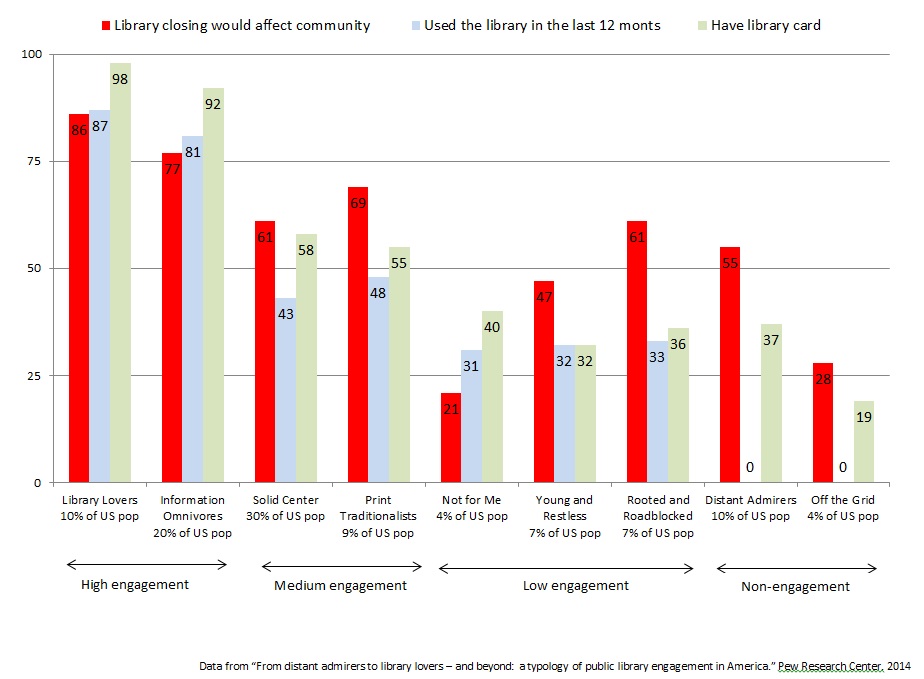Last week the Pew Internet and American Life Project released their latest report on the role of libraries in the digital age. I have loved being involved with this project and was excited for this latest report to go live. I was also nervous. Along with the typology of library users Pew was releasing data about library usage and reported perception of the role and importance of libraries, including the percentage of user in each group that has a library card. I know librarians love this statistic and they use it in their reports to library boards and in national data to show support of libraries. I also know librarians, and especially library directors dream of a day when this number will be 100% for their community. They are dreaming about the wrong thing.
I knew this and I was struggling to articulate it well. Fortunately for me I was traveling when the report was released and this meant less time online and writing and more time listening to podcasts and audiobooks. An episode of Iowa Public Radio’s River to River that included an interview with Robert McChesney gave me the answer. McChesney talked about the difficulty of using the marketplace to express support for public goods. The example he used in the interview (and that he uses in his book The Death and Life of American Journalism) is that of national parks. McChesney doesn’t visit national parks, he doesn’t intend to visit them in the future. If you calculated his support for public parks based on the fact that he doesn’t visit them or plan to you would conclude he doesn’t care about national parks, or if you pave them over, or mine them for resources. But you would be wrong. Just because he doesn’t use them personally does not mean he doesn’t value them.
We can make the same assumption for library card holders and library support. Rather than aiming for every community member to have a library card, the goal of libraries should be for every community member to support the library whether they use it personally or not.

An initial look at Pew’s data on typology looks promising, for example 98% of Library Lovers, which make up 10% of the population, have a library card. Sweet! Except. Wait. Only 86% of them say the closing of the library would affect their community. It only goes downhill from there.

For every user group the personal impact of library closure was lower than the community impact (I did not include those numbers in my graph but you can find them in the report). This is important because impact on self and the community is one of the ways that people decide where to place support, both in terms of personal financial support and time, and at the voting booth.
Rather than focusing on the percentage of the community that has a library card, libraries would be better off focusing on public support of the library and accepting that some people don’t use the library for one reason or another.

Leave a comment